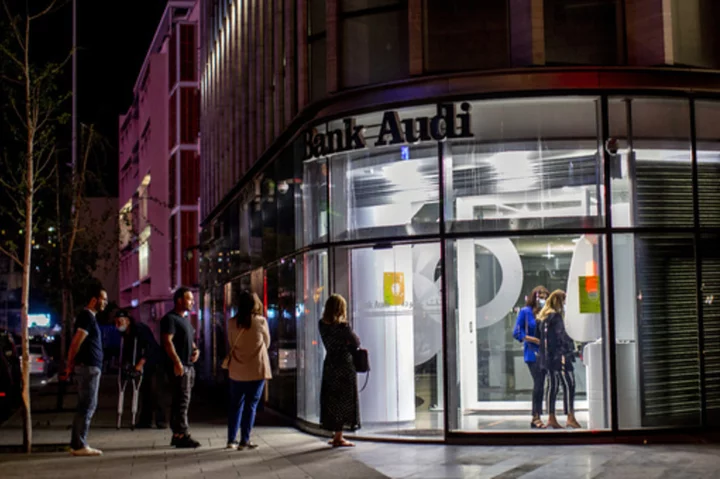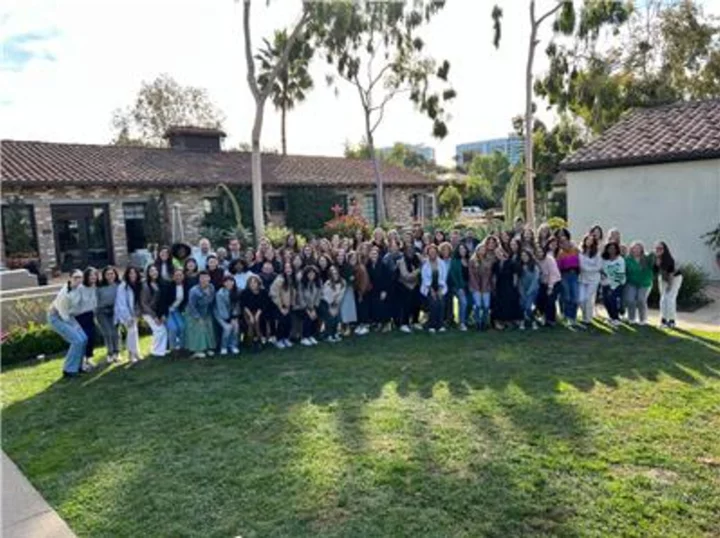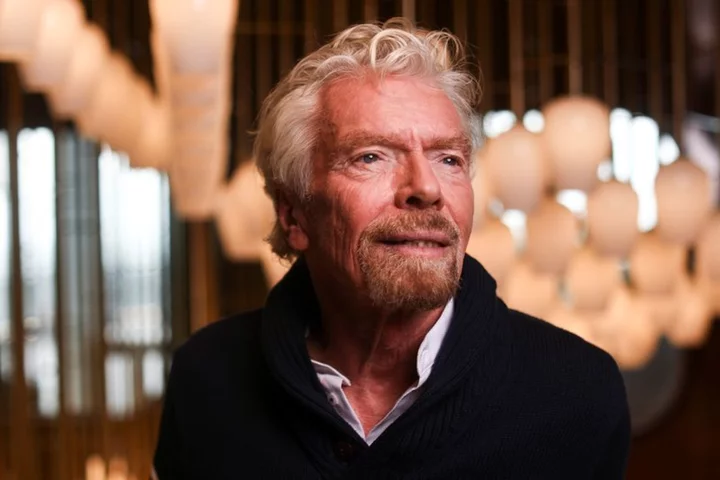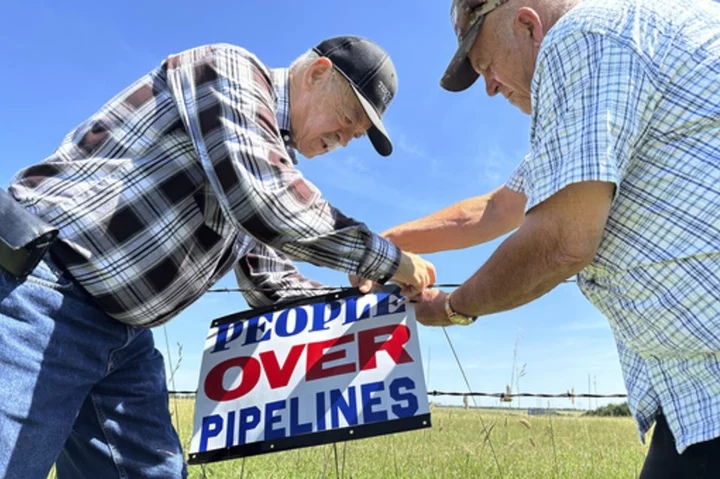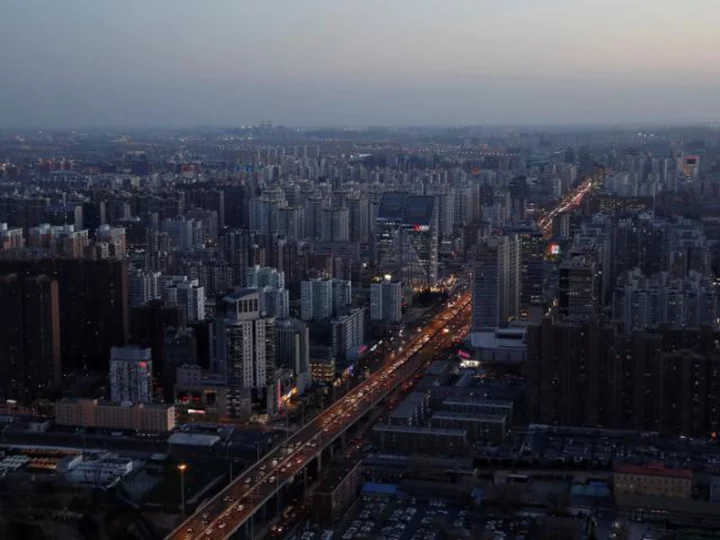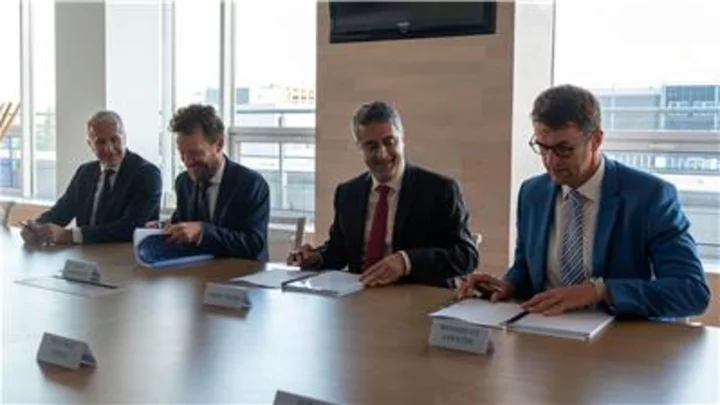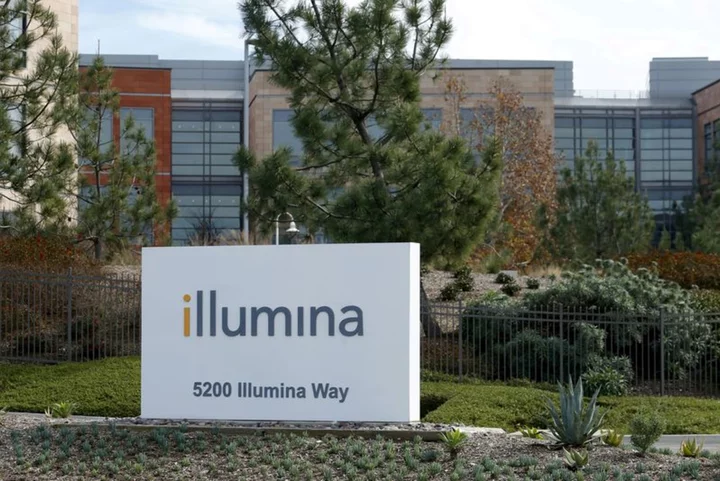BEIRUT (AP) — Four years into its historic economic meltdown, Lebanon’s political elites, masters at survival, are pushing for a recovery that would sidestep tough reforms demanded by the International Monetary Fund.
Economic experts and former officials involved in designing Lebanon’s original IMF-approved recovery plan in 2020 say the political leadership and associates in the banking sector are deliberately implementing a “shadow plan” to torpedo the deal and place the burden of bailing out the financial system on ordinary Lebanese who are already impoverished by the crisis.
Carrying out the IMF reforms, which include audits of Lebanon’s long secretive central bank and other banks, would not just force the elites to bear much of the cost of repairing the financial meltdown. It would also threaten the networks of corruption, patronage and waste that allowed them to milk the system for years, experts say.
“I would have never thought that these people, despite the size of the catastrophe, would still act with so much cold blood and irresponsibility,” said Alain Bifani, a former Finance Ministry director general and an architect of the recovery plan, speaking to The Associated Press about the elite’s refusal to implement it.
A growing number of politicians are now betting that a rebounding tourism sector, remittances from Lebanese abroad, and a fledgling natural gas industry will revive the economy without reforms requiring major sacrifices from them.
The financial meltdown has widely been blamed on the political leadership that has held power for decades — as well as top banking officials and former Central Bank Governor Riad Salameh.
Salameh, who ran the bank for 30 years until July, is under investigation on money laundering and embezzlement allegations and was slapped with sanctions two weeks ago by the United States, the United Kingdom and Canada.
For years before the crisis hit, the central bank operated what the World Bank says amounted to a Ponzi scheme to keep the economy afloat. It enticed commercial banks to lend it dollars at high interest rates to stay flush with cash. The banks then attracted customers to deposit dollar savings with even higher interest rates, turning a profit.
In late 2019, the scheme collapsed when the pipeline of dollars slowed, sparking a panic and a run on the banks. The banks locked down dollar accounts, allowing depositors to withdraw only in local currency at a fraction of the market rate. The life savings of many effectively melted away.
Lebanon’s inflation hit triple-digits. Its currency, the lira, which had been pegged at 1,500 to the dollar for a quarter century, now goes for around 90,000 on the black market. Sucked dry of funds, state electricity is now nearly non-existent. Public schools and hospitals can barely afford to keep their lights on. Officials beg for humanitarian aid similar to that for a nation in war.
“Before the crisis, they were extracting air from the lungs of society,” said Sami Zoughaib, an economist at Beirut-based think tank The Policy Initiative. “Now that society is dead, they are preying on the carcass.”
The lira incomes of public sector workers and pensions of retirees, who together make up a large sector of the population, have become nearly worthless. For survival, Lebanese scrounge for dollars, most often sent by relatives abroad. Most businesses now require payment in dollars — everything from grocery stores and pharmacies to private hospitals and private electricity generators.
Jeanette Fares, 62 and unemployed, relies on money from her brothers, who are themselves struggling. She rarely drives her 1995-model car anymore because gas is expensive.
“It’s all lies. I can’t even fix my faucet,” she said, calling the country’s rulers “mafias."
An IMF bailout was once seen as Lebanon’s only hope.
After nearly two years of talks, Lebanon reached a tentative deal with the IMF in April 2022 for a $3 billion rescue package. But finalizing it is contingent on major financial restructuring and reforms to combat corruption and waste.
The IMF plan would place much of the burden of backfilling the financial system’s losses on commercial bank shareholders, who include many prominent Lebanese political families and private sector associates. After extensive audits, many banks would have to sell assets or merge with others. Small depositors, meanwhile, would be able to recover most of their money.
A finalized deal with the IMF would open the door for the rescue package and billions of dollars of international investments and loans badly needed to rebuild productive sectors.
Without the deal and its associated reforms, Lebanon won’t get the investment and will be left “dependent on the handouts from the international community,” the IMF head of mission in Lebanon Ernesto Rigo warned in June.
Caretaker Economy Minister Amin Salam told the AP in a recent interview that a growing number of officials in government believe Lebanon can do without an IMF plan, or can better its negotiation position, “with a little bit of housekeeping” in the financial system.
Salam said officials he recently met from oil-rich Gulf nations that once poured billions into Lebanon told him they felt the same.
He and other officials are banking on remittances from the diaspora that now make up almost 40% of the economy, while welcoming record numbers of tourists this summer. Tourists shell out hard cash in private beach clubs along the Mediterranean by day before flocking to nightclubs until sunrise.
Meanwhile, commercial banks — spared from restructuring — are instead cleaning up their losses on the backs of small depositors, who are forced to withdraw their trapped dollars as lira at a rate of 15,000, a sixth of their current market value.
Lebanon started negotiating with the IMF in May 2020, but Bifani called the discussions a joke given the divisions on the Lebanese side.
Ruling parties, commercial banks and the central bank played down the crisis, claiming the estimates of financial losses, a gargantuan $70 billion, were inflated.
Reformist ministers and advisers promoting the initial IMF-backed recovery plan say they faced resistance and animosity. One former senior government official said they and other officials had received threats for advocating tough reforms. The official spoke on condition of anonymity out of fear of retaliation.
Then-central bank chief Salameh, who was on the negotiating team, often ignored requests to send crucial information about the financial situation and dwindling foreign reserves, Bifani said. Salameh also did not cooperate with a forensic audit into the central bank’s questionable financial transactions.
The banks, meanwhile, proposed a plan placing the majority of the financial burden on the government, calling for a sale of state assets — or in other words, a government bailout. Talks froze within weeks, prompting Bifani and finance minister adviser Henri Chaoul to resign in late June 2020.
“I will not stand witness to this detrimental inaction,” Chaoul said in his resignation statement.
The government has put talks on the back burner. The negotiating portfolio is held by Deputy Prime Minister Saade Chami, a reformist economist who spent almost two decades working at the IMF, but he has virtually no political support.
Parliament’s budget and finance committee has ignored reform legislation, several parliamentarians told the AP. Instead, they said, it mostly focuses on setting up a sovereign wealth fund for hoped-for oil and gas revenues, though exploration in an offshore gas field has not started.
Outside the buzzing nightlife spots and fancy hotels, much of Lebanon’s impoverished population is losing hope.
“They live in their palaces,” Fares said of the country’s ruling elite, “and don’t notice the poor people who can barely afford to eat.”

